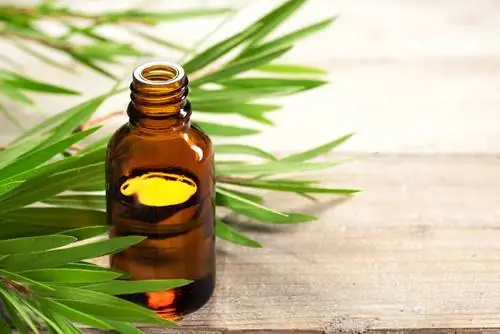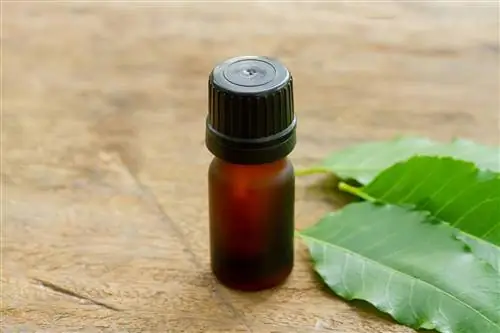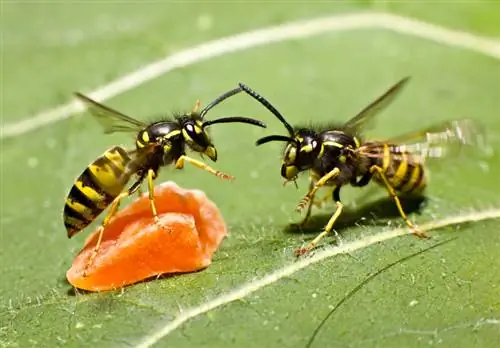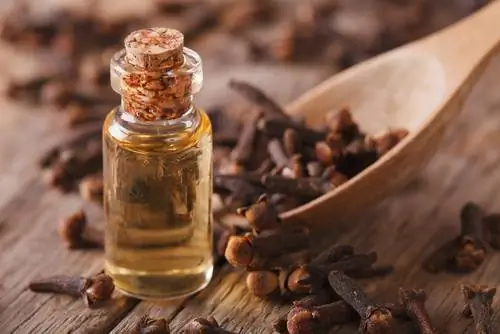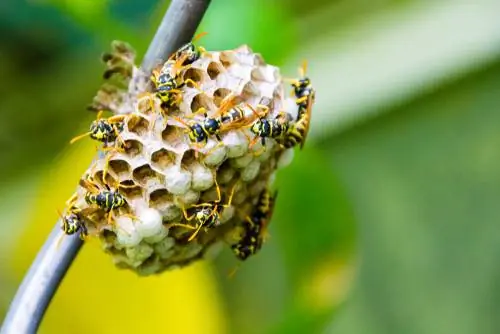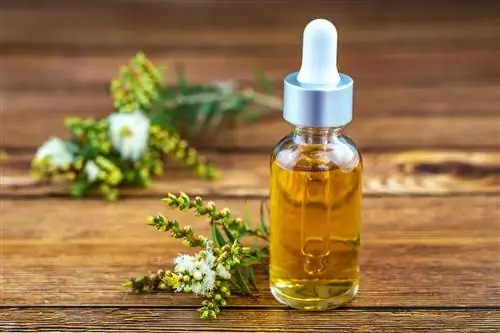- Author admin leonars@hobbygardeners.com.
- Public 2023-12-16 16:46.
- Last modified 2025-01-23 11:22.
There are many home remedies circulating against annoying wasps in late summer. Including tea tree oil, among other essential oils. How you can use the old remedy from the Australian natural pharmacy against insects is varied and quite effective.
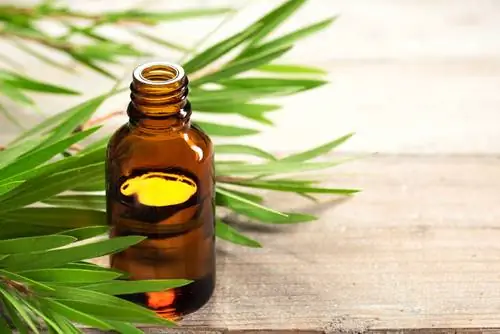
How can you use tea tree oil against wasps?
Tea tree oil can be used as a natural insect repellent against wasps by using it in scented lights or spray dispersers. Tea tree oil can help relieve stings, but caution should be exercised if the skin is sensitive.
Amazing Tea Tree Distillate
When people talk about tea tree oil, they usually mean Australian tea tree oil, which is obtained from the leaves of the Australian tea tree (Melaleuca alternifolia). The leaves of the Melaleuca trees have long been part of the traditional medical base of the Aborigines. However, the distillate was probably first produced in a scientific environment around 100 years ago. Since then, it has established itself in alternative medicine, primarily due to its strong antiseptic, bactericidal and fungicidal properties.
To remember:
- Tea tree distillate has been used in alternative medicine for around 100 years
- Has strong antiseptic, bactericidal and fungicidal effects
Tea tree oil against wasps
Its effective antimicrobial properties have also given tea tree oil a permanent place as a home remedy. In addition to its healing effect on skin problems, throat irritations and mental unrest, it has also proven itself as a repellent against insects.
As an odor barrier
On the one hand, most insects, including wasps, find its fresh, ethereal, spicy smell repulsive. The intense smell of tea tree oil in the air can therefore actually keep wasps away to a certain extent. However, such odor barriers, such as the scent of lavender or basil, should be used with reservations. They cannot be dissuaded from temptingly smelling food sources such as open jam jars or juicy grilled steaks on the garden table. They simply cannot afford that with a state that has around 9,000 animals to care for.
If you don't want to be visited by wasps while relaxing in a deck chair, you can spread the scent of tea tree oil into your immediate surroundings in the following way:
- In the scented light
- About a spray disperser
With the scented light, the flame's deterrent effect on wasps is added and the scent is emitted intensively. You can achieve a particularly acute and targeted effect by diluting the tea tree oil with water and adding it to a spray disperser.
As a relief for stitches
Even if you have already been bitten, tea tree oil can help. It has already proven itself as a skin remedy because of its antimicrobial effect. In addition, it is also said to have a braking effect in the event of an excessive immune reaction to insect venom. It is important for allergy sufferers to know that the oil, undiluted, poses a risk of contact dermatitis.
Use pure tea tree oil
Basically, you should make sure to use real, high-quality tea tree oil. There are numerous inferior stretching and perfumed products that hardly achieve the desired effect. It is best to get the oil from he alth food stores or he alth food stores and look for the note that it is 100% made from the leaves of Melaleuca alternifolia. Of course, this requires you to dig a little deeper into your pockets than with supermarket alternatives. However, you usually only need a few drops per application.

